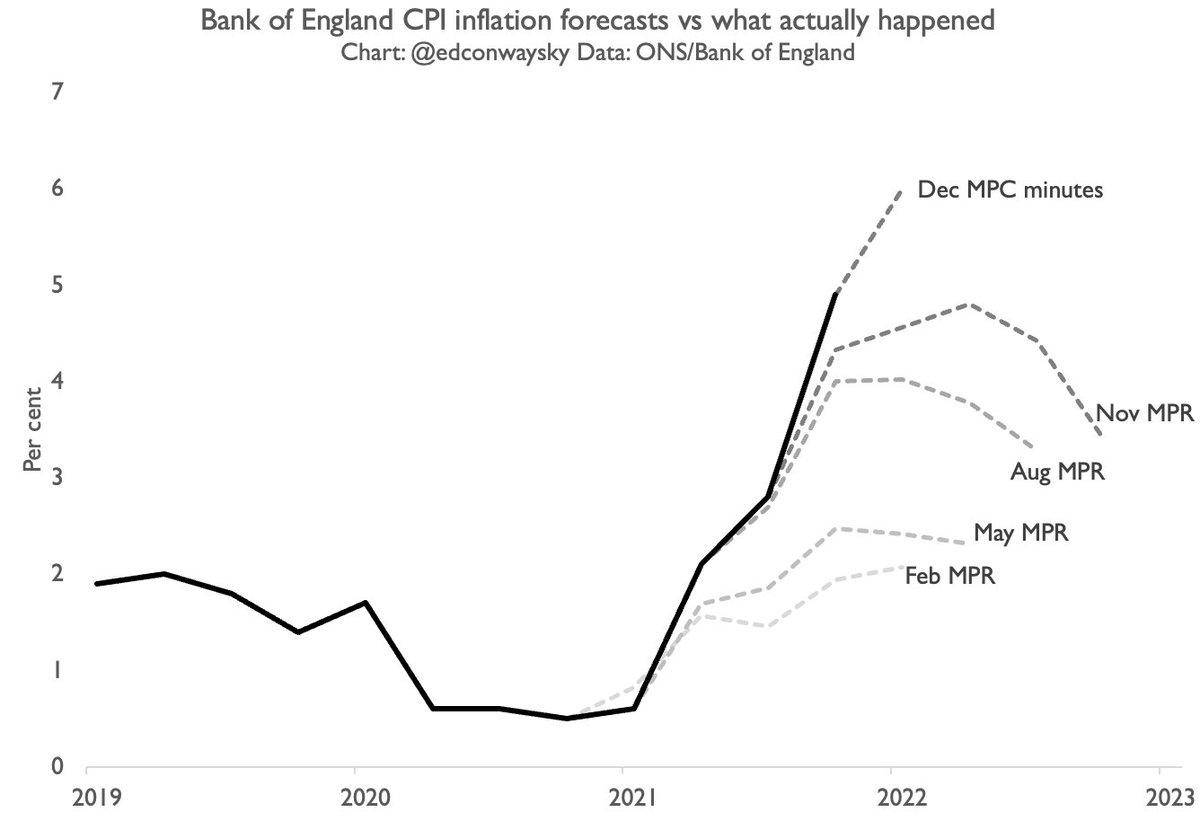
NEW: UK benchmark inflation rate rises to highest level since 1992. Consumer Prices Index hit 5.4% in Dec, up from 5.1% in Nov and way above @bankofengland 2% target ons.gov.uk/economy/inflat… 

Two questions: first, how high will CPI get in the coming months? @bankofengland said 6% but many economists think 7%.
Second, how soon does BoE raise int rates again? Could be as soon as next meeting in Feb (prob up from 0.25% to 0.5% so still v v low by historical standards)
Second, how soon does BoE raise int rates again? Could be as soon as next meeting in Feb (prob up from 0.25% to 0.5% so still v v low by historical standards)
The point here (and this can't be emphasised enough) is that this 30yr high in inflation is happening BEFORE the impact of a record increase in energy bills which, as I ran through in this thread last night, will squeeze households even further
https://twitter.com/edconwaysky/status/1483512210370580488
Of course prices can go down too. And eventually they will. But for the time being the momentum is v much 🆙.
Consider food price inflation:
Already at a 9yr high.
But high gas prices ➡️ fertiliser plant shutdowns ➡️ higher fertiliser prices ➡️ higher food prices next harvest
Consider food price inflation:
Already at a 9yr high.
But high gas prices ➡️ fertiliser plant shutdowns ➡️ higher fertiliser prices ➡️ higher food prices next harvest
CHART: How the @bankofengland’s inflation forecasts over the past year (grey dashed lines) compare with what actually happened.
See if you can spot a trend.
See if you can spot a trend.

• • •
Missing some Tweet in this thread? You can try to
force a refresh











